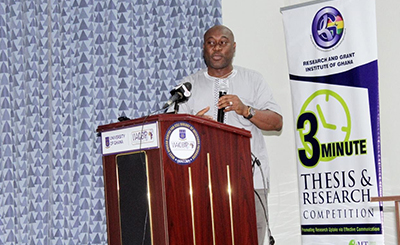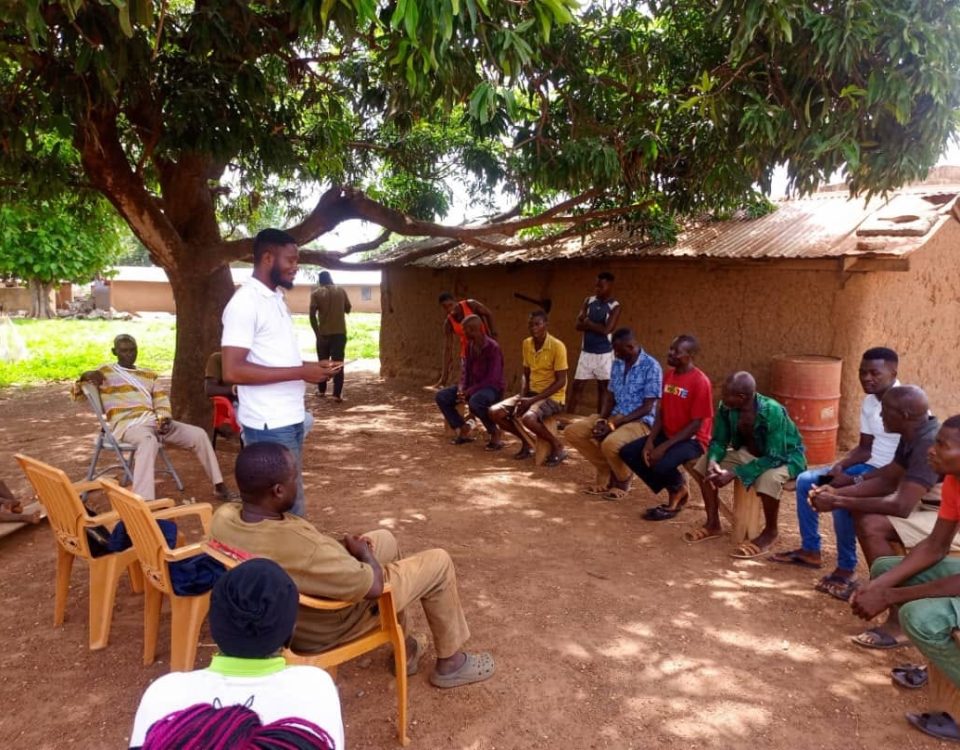

Ghanaian Scientists Contribute to Genomic Sequence of Novel Coronavirus
Scientists from the University of Ghana have contributed to the genomic sequence of SARS-CoV-2, the virus responsible for the COVID-19 pandemic. Among the scientists who undertook the research is Professor Gordon Awandare, the Director of West African Centre for Cell Biology of Infectious Pathogens and Board Member of the Research and Grant Institute of Ghana (ReGIG).
Originating from Wuhan, China, SARS-CoV-2 is spreading across the globe, affecting both high-, middle-, and low-income countries. As of 12 April 2020, at 02:00 GMT, the World Health Organisation reports that more than 1.6 million people have tested positive for COVID-19, with 105, 952 confirmed deaths in 213 countries, areas and territories. Renowned scientists in the best laboratories in Asia, Europe and America have already sequenced the genome of the dreaded virus to understand its nature and characteristics to facilitate the development of vaccines and other therapies. It is still essential that other countries map out the genomic sequence of the virus found in patients in their respective countries. This becomes imperative because the virus can, overtime, mutate due to peculiar environmental and other situational factors found in the different countries. Knowing the specific genomic sequence in one’s country will therefore be relevant in determining potential vaccines and other therapeutic agents which can be used in that country.
In Africa, however, not much scientific research focusing on the genome of SARS-CoV-2 has been reported. Ghanaian scientists have recently joined their counterparts from Nigeria and South Africa to contribute to the science of SARS-CoV-2 by using high throughput methods to understand the genomic sequence of the dreaded virus in sub-Saharan Africa. In a communique issued by the public affairs directorate of the University of Ghana, scientists from two centres of research excellence in the University, namely Noguchi Memorial Institute of Medical Research and the West African Centre for Cell Biology of Infectious Pathogens contributed jointly to the genomic sequence of SARS-CoV-2 in Ghana. Based on samples from 15 COVID-19 patients in Ghana, the scientists found > 92 % similarity with the genomic data produced first in Wuhan Province of China. Their finding has been shared on the Open Access data-sharing platform called Global Initiative on Sharing All Influenza Data (GISAID) database.
This finding implies that not much of a change exists in the genetic composition of the virus that caused the outbreak in China and that found in Ghana. This is certainly good news for vaccine development and general drug utilization to combat the pandemic as Ghana’s finding implies that potential vaccines developed against the virus in China may have high efficacy in Ghana. The present research finding in Ghana is a testament to the fact that research on the African continent is progressing faster than ever. The Research and Grant Institute of Ghana is proud to be associated with the venerated academician, Professor Awandare. TOGETHER, WE SHALL WIN THE FIGHT AGAINST COVID-19.




